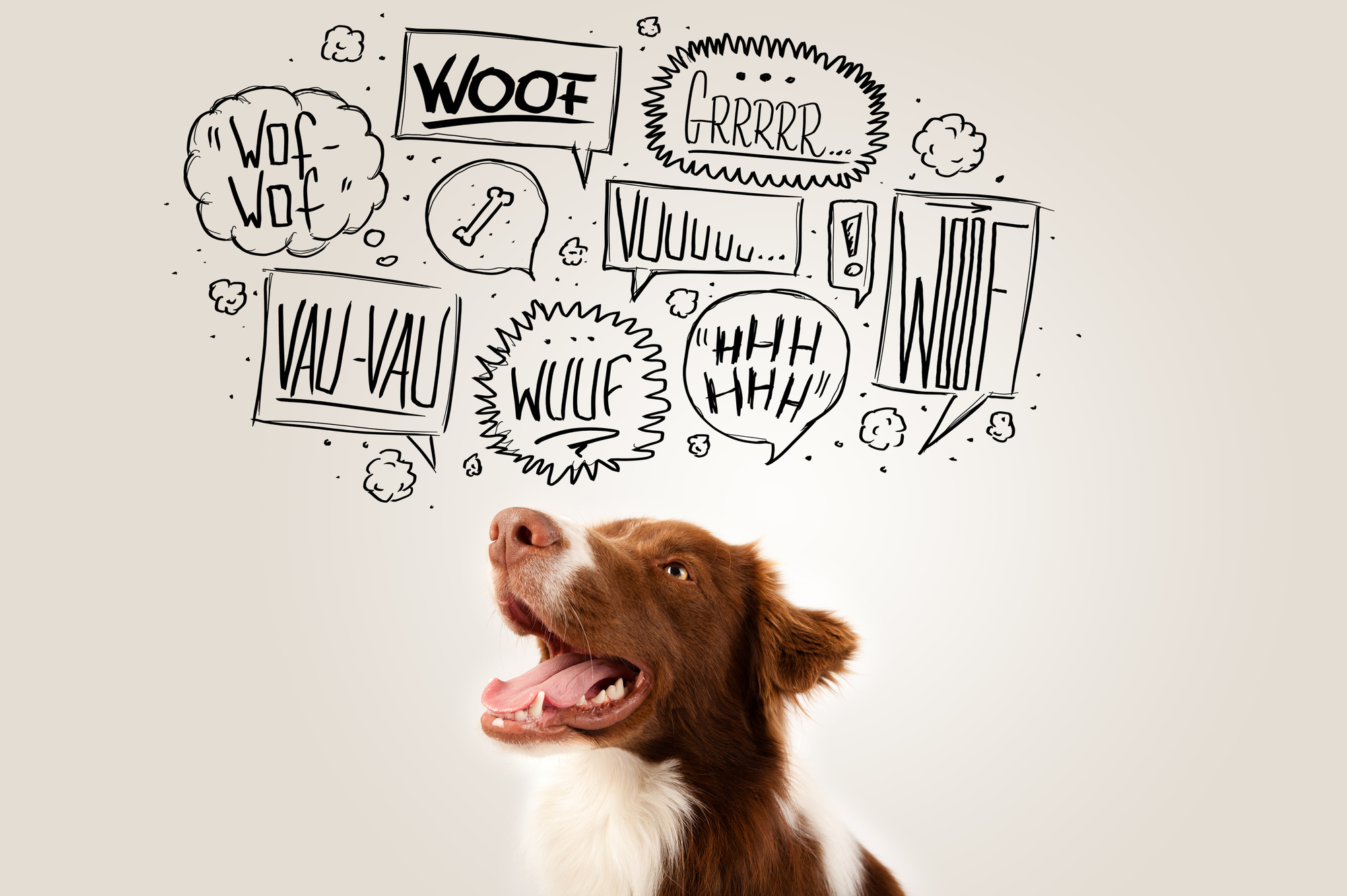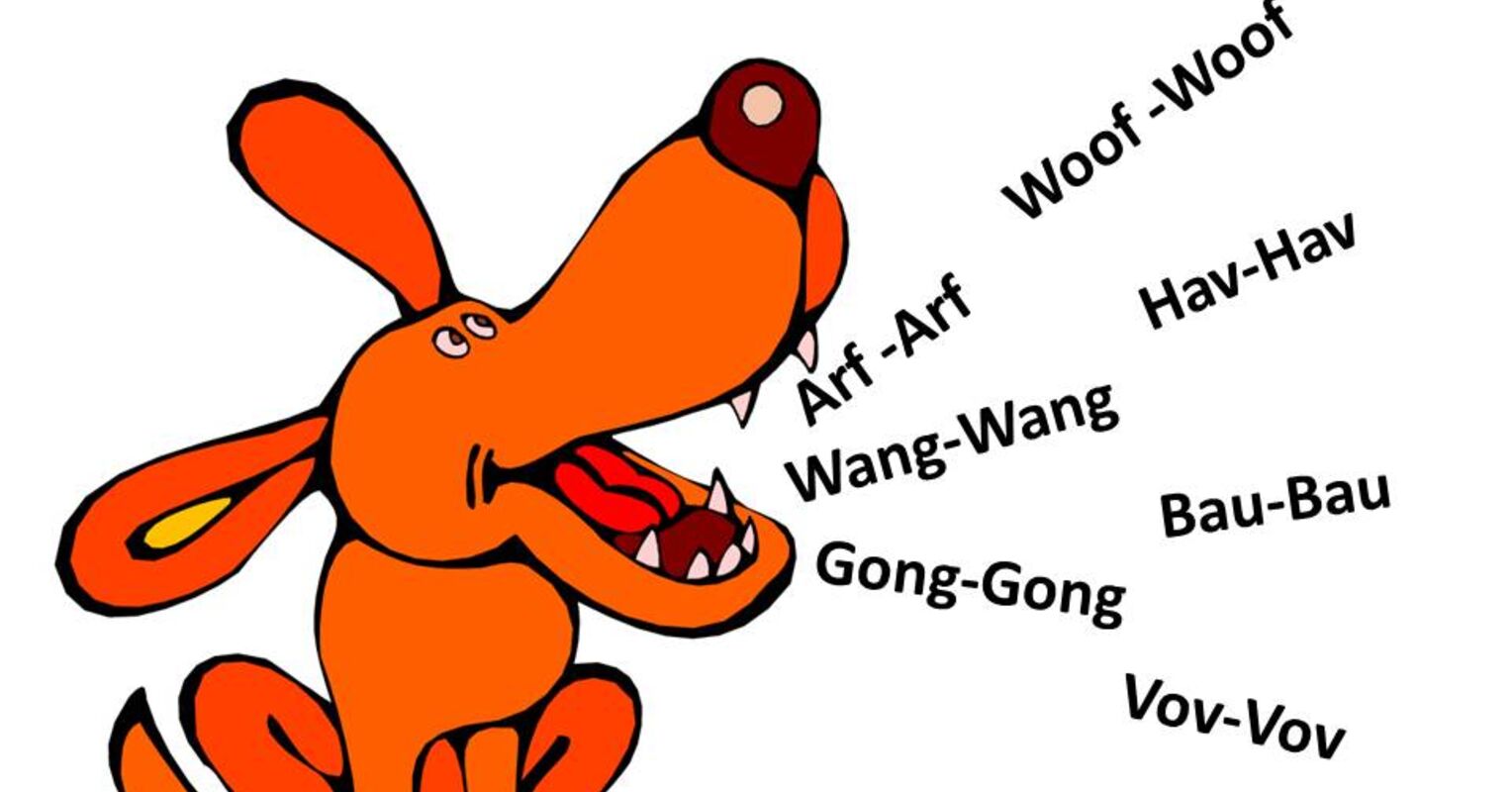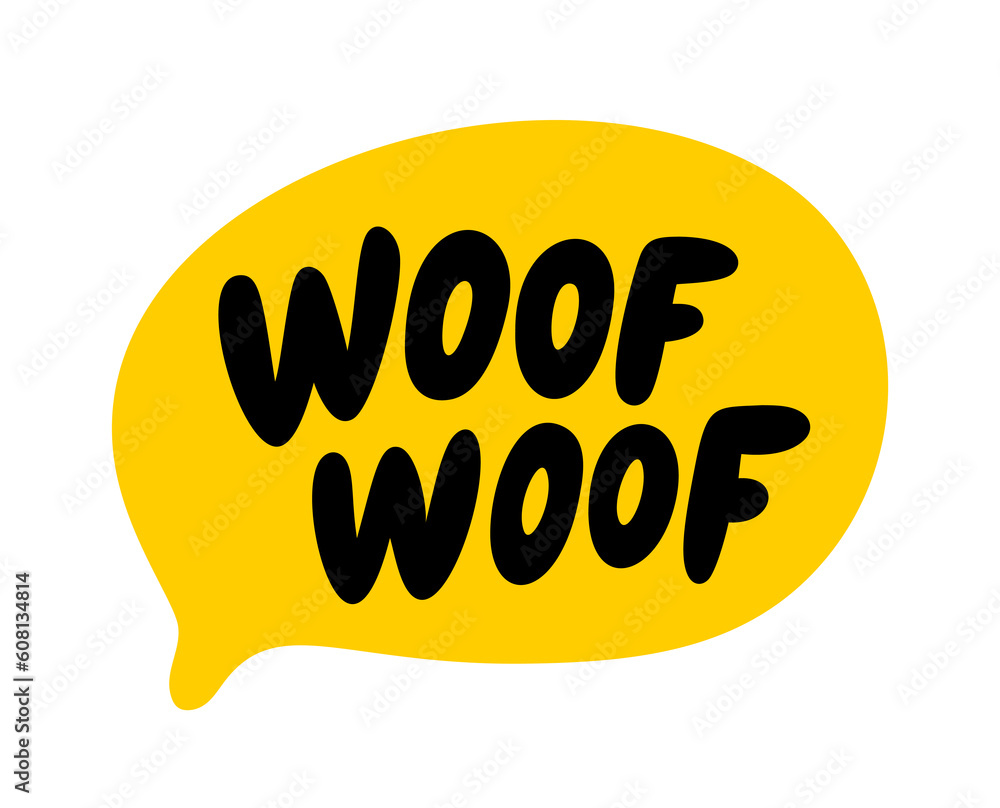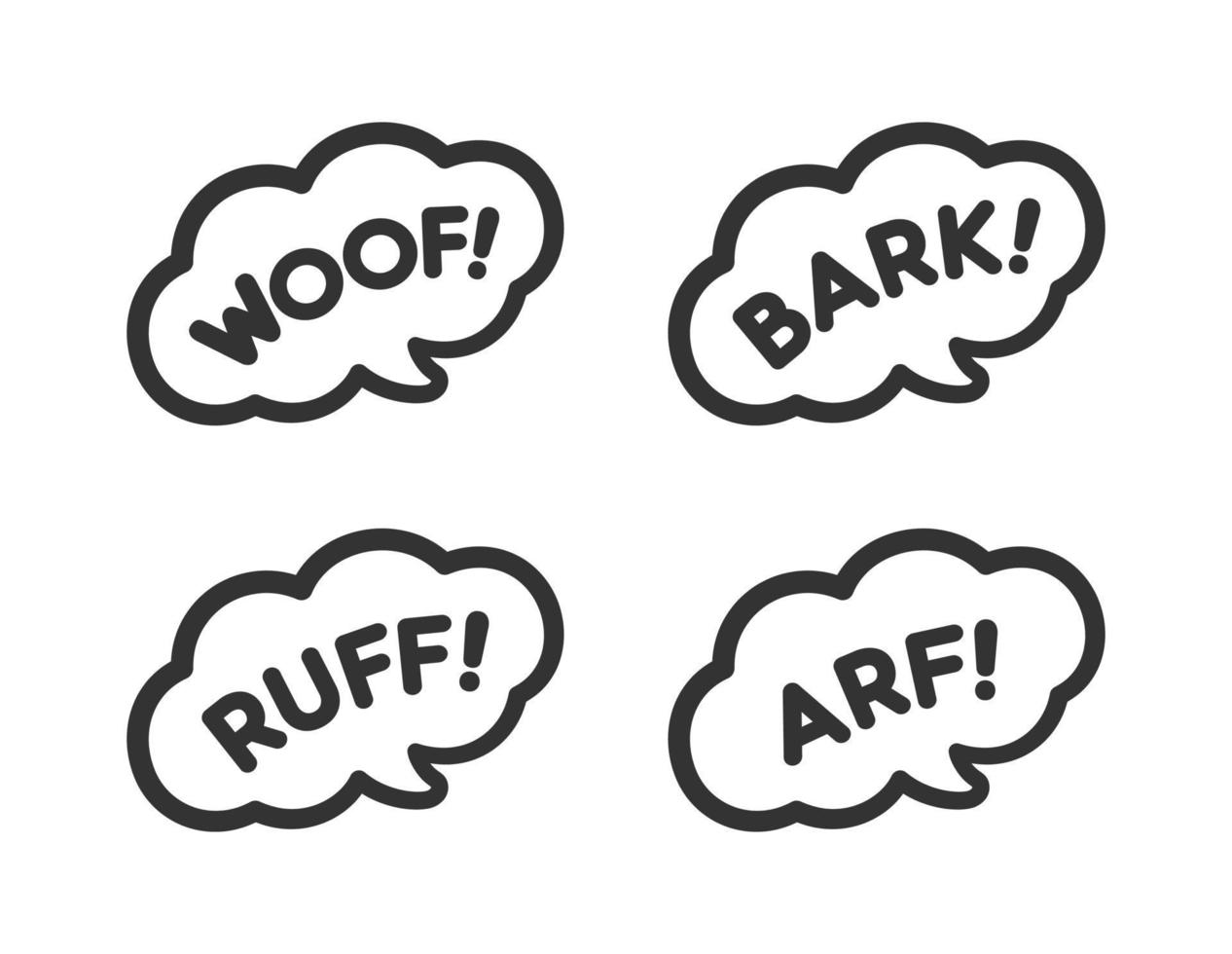Dog Bark Sound Word
Dog Bark Sound Word - How to pronounce some of these words. To describe dog sounds in words, consider factors like size, emotion, and context, using adjectives, metaphors, and onomatopoeia to capture the essence of the bark. How to write the sounds made by dogs in different languages. Woof is the conventional representation in the english language of the barking of a dog. The loud sound that dogs usually make is a bark. Pay attention to pitch, volume, and rhythm for an accurate and. As with other examples of onomatopoeia or imitative sounds, other cultures “hear” the dog’s barks differently and represent them in their own ways. Angry dogs growl, scared or sad dogs whimper, and some dogs (and wolves) howl. Cats, cockerels, cows, dogs, ducks, horses, owls. A dog that says “woof” is not “woofing,” it’s barking.
Angry dogs growl, scared or sad dogs whimper, and some dogs (and wolves) howl. Cats, cockerels, cows, dogs, ducks, horses, owls. Pay attention to pitch, volume, and rhythm for an accurate and. Woof is the conventional representation in the english language of the barking of a dog. A dog that says “woof” is not “woofing,” it’s barking. As with other examples of onomatopoeia or imitative sounds, other cultures “hear” the dog’s barks differently and represent them in their own ways. How to pronounce some of these words. The loud sound that dogs usually make is a bark. To describe dog sounds in words, consider factors like size, emotion, and context, using adjectives, metaphors, and onomatopoeia to capture the essence of the bark. How to write the sounds made by dogs in different languages.
A dog that says “woof” is not “woofing,” it’s barking. How to pronounce some of these words. To describe dog sounds in words, consider factors like size, emotion, and context, using adjectives, metaphors, and onomatopoeia to capture the essence of the bark. The loud sound that dogs usually make is a bark. How to write the sounds made by dogs in different languages. Woof is the conventional representation in the english language of the barking of a dog. Angry dogs growl, scared or sad dogs whimper, and some dogs (and wolves) howl. As with other examples of onomatopoeia or imitative sounds, other cultures “hear” the dog’s barks differently and represent them in their own ways. Cats, cockerels, cows, dogs, ducks, horses, owls. Pay attention to pitch, volume, and rhythm for an accurate and.
Dog Barking Sounds What is Your Best Friend Trying to Tell You?
Angry dogs growl, scared or sad dogs whimper, and some dogs (and wolves) howl. Cats, cockerels, cows, dogs, ducks, horses, owls. The loud sound that dogs usually make is a bark. Woof is the conventional representation in the english language of the barking of a dog. How to write the sounds made by dogs in different languages.
Dog Barking Dog Barking Sound Effect Dog Sound Effect Dog Bark Sound
How to write the sounds made by dogs in different languages. Woof is the conventional representation in the english language of the barking of a dog. To describe dog sounds in words, consider factors like size, emotion, and context, using adjectives, metaphors, and onomatopoeia to capture the essence of the bark. How to pronounce some of these words. Pay attention.
How Dogs Bark in Different Languages Psychology Today
As with other examples of onomatopoeia or imitative sounds, other cultures “hear” the dog’s barks differently and represent them in their own ways. Pay attention to pitch, volume, and rhythm for an accurate and. A dog that says “woof” is not “woofing,” it’s barking. Angry dogs growl, scared or sad dogs whimper, and some dogs (and wolves) howl. How to.
What Does A Dog Sound Like Barking
How to write the sounds made by dogs in different languages. Pay attention to pitch, volume, and rhythm for an accurate and. A dog that says “woof” is not “woofing,” it’s barking. As with other examples of onomatopoeia or imitative sounds, other cultures “hear” the dog’s barks differently and represent them in their own ways. To describe dog sounds in.
What Dogs Say In Different Languages
The loud sound that dogs usually make is a bark. A dog that says “woof” is not “woofing,” it’s barking. Woof is the conventional representation in the english language of the barking of a dog. Cats, cockerels, cows, dogs, ducks, horses, owls. How to pronounce some of these words.
WOOF WOOF text. Vector word Woof dog sound. Speech bubble logo
Woof is the conventional representation in the english language of the barking of a dog. Angry dogs growl, scared or sad dogs whimper, and some dogs (and wolves) howl. The loud sound that dogs usually make is a bark. To describe dog sounds in words, consider factors like size, emotion, and context, using adjectives, metaphors, and onomatopoeia to capture the.
Bark text word dog sound speech Royalty Free Vector Image
As with other examples of onomatopoeia or imitative sounds, other cultures “hear” the dog’s barks differently and represent them in their own ways. A dog that says “woof” is not “woofing,” it’s barking. How to pronounce some of these words. Pay attention to pitch, volume, and rhythm for an accurate and. How to write the sounds made by dogs in.
Dog bark animal sound effect text in a speech bubble balloon clipart
The loud sound that dogs usually make is a bark. A dog that says “woof” is not “woofing,” it’s barking. To describe dog sounds in words, consider factors like size, emotion, and context, using adjectives, metaphors, and onomatopoeia to capture the essence of the bark. How to pronounce some of these words. How to write the sounds made by dogs.
Dog Barking Sounds Remix YouTube
Woof is the conventional representation in the english language of the barking of a dog. As with other examples of onomatopoeia or imitative sounds, other cultures “hear” the dog’s barks differently and represent them in their own ways. Pay attention to pitch, volume, and rhythm for an accurate and. To describe dog sounds in words, consider factors like size, emotion,.
Bark Sound Effect Tempora Alia Sammler wallpaperlist
To describe dog sounds in words, consider factors like size, emotion, and context, using adjectives, metaphors, and onomatopoeia to capture the essence of the bark. How to pronounce some of these words. Angry dogs growl, scared or sad dogs whimper, and some dogs (and wolves) howl. Cats, cockerels, cows, dogs, ducks, horses, owls. Woof is the conventional representation in the.
Cats, Cockerels, Cows, Dogs, Ducks, Horses, Owls.
Woof is the conventional representation in the english language of the barking of a dog. Angry dogs growl, scared or sad dogs whimper, and some dogs (and wolves) howl. How to pronounce some of these words. Pay attention to pitch, volume, and rhythm for an accurate and.
To Describe Dog Sounds In Words, Consider Factors Like Size, Emotion, And Context, Using Adjectives, Metaphors, And Onomatopoeia To Capture The Essence Of The Bark.
How to write the sounds made by dogs in different languages. As with other examples of onomatopoeia or imitative sounds, other cultures “hear” the dog’s barks differently and represent them in their own ways. A dog that says “woof” is not “woofing,” it’s barking. The loud sound that dogs usually make is a bark.









